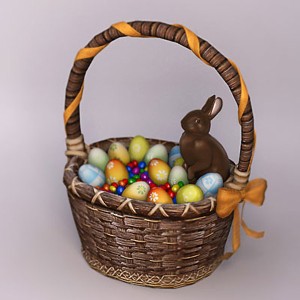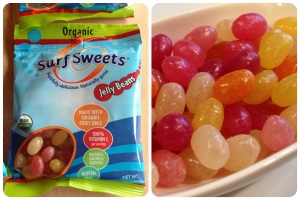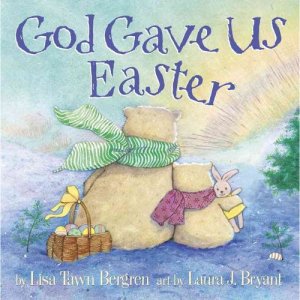Easter Baskets.
The poster child for Spring.
By now, you have probably heard about slavery in the cocoa bean industry. You have probably already heard that children are literally trafficked across borders in order to wield large machetes to cut down cocoa beans for sixteen hours a day so that we have our cheap chocolate for any holiday, and any day in between.
And as we grace the aisles of our local grocery stores, the options for our kids’ Easter baskets just seem to grow year after year. There is really nothing that cannot be persuasively marketed to appeal to an Easter basket – from socks to pencils to hand soap.
And before we know it, we find ourselves buying BIGGER Easter Baskets to accommodate all the cute, Spring-like fun we found in the dollar bins.
Here’s the reality.
Are you able to hear it?
Just as we heard in Economics class that there is “no such thing as a free lunch”, the same is true in that there is “no such thing as a really good deal.” When a product arrives to us at a phenomenal retail price, more than likely a human paid an unbelievable price through slave labor in the supply chain.
And if I choose to NOT ignore that fact – if I choose to allow that reality to set in – then that phenomenal deal is no longer even attractive anymore.
But – what then?
I would like to offer the mantra – “less is more”.
LESS IS MORE.
The reality is that the best weapon we have in our arsenal to reduce slave labor in the supply chains is to NOT consume those products that propagate slavery. It’s a marathon, folks. It is not something that will happen over night. So, let’s see what we can do to reduce that slavery and our consumption when it comes to Easter baskets.
In the spirit of “less is more”, here are some places to start for items that not only reduce slave labor, but actually support elevating people out of poverty so that trafficking is far less likely to occur.
1. Chocolate. Here is my favorite source for Direct Trade chocolate. I love Equal Exchange and encourage you to consider shopping for products here to slowly replace those that already exist in your pantry as well. As I type this, their web site shows that the chocolate eggs are out of stock. I recommend calling them directly. And if it is not possible – if we are too late – just google Fair Trade Easter Chocolate, and I am sure you will be able to find something.
Remember:: Fair Trade and Direct Trade costs more because the labor is not slavery. The workers receive a fair wage. It requires a paradigm shift for all of us – to consider buying less product in order to ensure that we are not contributing to the despair of another.
http://shop.equalexchange.coop/organic-chocolate-minis-easter-eggs.html
2. Jelly Beans. I have yet to see any Fair Trade jelly beans and would venture to say that perhaps there is not a need for them, but again – in the spirit of less is more, we are just doing one small bag of them so that I can purchase something that costs a little bit more to put in the baskets this year. We got these at Whole Foods (again – a small, affordable bag!).
I also have bought these jelly beans in the past and learned of them through my Trade As One subscription (www.tradeasone.com). Again, if you have not heard of The Women’s Bean Project, it is another phenomenal resource to replenish your pantry. Their soups and spice packets are delicious! And by purchasing their goods, you are supporting a woman’s ability to make a sustainable income to support her family. Win-win.
3. Gifts. This might be the trickiest part. For me, I have always enjoyed the dollar bins at Target in order to stuff my daughters’ Easter Baskets. The reality is, after about an hour (a day at the very longest), those little basket fillers are broken, or used, or otherwise discarded into the depths of the toy bin, never to be enjoyed again. At the same time, my daughters already have a few stuffed animals that are hand knitted by fair trade artisans in Peru. So, what to do?
When I looked at our Slavery Footprint (www.slaveryfootprint.org), I was SHOCKED to find out how my daughters’ extensive collection of stuffed animals was a major contributor to the number of slaves that worked for us!
So, we now only allow a new stuffed animal into the Kuba home if one is re-located to a new home.
And so, this year, we are placing a couple of meaningful and beautiful books into our kids’ Easter baskets instead. Here are just a few of our favorites.
Less is More.
People matter more.
As a woman of faith, refusing to purchase another person’s despair is to honor the reason for the Cross.








Love this post. So helpful. I wish it wasn’t so hard to get past the mental barrier for people – the barrier of the attraction of convenience and cheap things. It’s luring to all of us…but the way you stated it – refusing to purchase another’s despair – is on point! I hope this sinks in for many who read this post. And they cross over that line and really do refuse to be lured…but instead, do a little DIY basket (I’m making fudge eggs! I think for my 2 kids, I will make my own little nest out of twigs around my yard, for the eggs to rest in, and stick some tiny flowers in it too. Is that weird?! But the book idea is awesome too). I would love to make something like a cave-like grave where kids roll away a chocolate “stone” and there’s nothing but little strips of bandage gauze inside. Ha ha! Psyche.
Yesterday the customer in front of me bought close to 390.00 worth of Easter supplies – NOT including food! Lord Jesus, help us! Give us creative ways to celebrate holidays. Ways that truly honor You and if we must purchase anything, may our purchases honor you by honoring your cherished creation – the people who made those items.
So agree, Chelan. It seems like it is an epidemic, doesn’t it? Happy Easter to your family. Hope our paths cross in person some day!